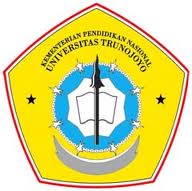Anda belum Log-in!
Silahkan Log in
Selamat Datang di Portal Digital Content Publisher
Selasa , 18 November 2025
Perpustakaan sebagai jantung pendidikan tinggi di Indonesia, harus mampu memberi kontribusi yang berarti bagi pelaksanaan proses belajar mengajar di perguruan tinggi.
di-posting oleh 190341100002 pada 2025-11-14 03:11:23 • 8 klik
Hubungan N/P Rasio Terhadap Keanekaragaman Fitoplankton di Tambak Udang Vaname (Litopenaeus vannamei) Sumbawa Barat, Nusa Tenggara Barat
The Realationship Between N:P Ratio and Phytoplankton Diversity in Vaname Shrimp Ponds (Litopenaeus vannamei) West Sumbawa, West Nusa Tenggara
disusun oleh RHESY AGNESIA FEBRIANI
| Subyek: | FITOPLANKTON—EKOLOGI—TAMBAK UDANG |
| Kata Kunci: | Nitrat Fosfat N/P Rasio Fitoplankton Udang Vaname Tambak Udang |
[ Anotasi Abstrak ]
Fitoplankton sangat berperan penting dalam budidaya udang vaname (Litopenaeus vannamei) yang dijadikan sebagai salah satu sumber makanan. Pertumbuhan fitoplankton pada tambak udang juga dipengaruhi oleh konsentrasi nitrogen dan fosfor atau yang sering disebut N:P rasio yang ada pada tambak udang. Penelitian ini bertujuan untuk mengetahui Hubungan N:P Rasio dengan Keanekaragaman Fitoplankton di Tambak Udang Vaname (Litopenaeus vannamei) Sumbawa Barat, Nusa Tenggara Barat dengan menggunakan regresi linier sederhana untuk mengetahui hubungan N:P rasio dengan keanekaragaman fitoplankton. Konsentrasi nilai nitrat yang ada di tambak udang yang tertinggi yaitu 17.5 mg/l dan konsentrasi nilai fosfat yang tertinggi berada pada petak 5 di minggu ke 7 sebesar 6 mg/l. Komposisi fitoplankton yang berada di tambak udang yaitu terdapat empat family yaitu family Chlorophyta, Cyanophyta, Dinoflagelata, dan Diatom (Bacillariophyta). Komposisi fitoplankton yang didapatkan yaitu bahwa pada setiap petaknya didominasi oleh Chlorophyta (Green Algae) dan petakan yang memiliki jumlah individu tertinggi berada pada petak ke 3 yaitu sebesar 1193,8 ind/L. Hubungan antara rasio N:P dengan keanekaragaman fitoplankton pada penelitian kali ini yaitu rasio N:P berpengaruh signifikan terhadap keanekaragaman fitoplankton dengan nilai R2 sebesar 15,5%.
Deskripsi Lain
Phytoplankton plays an important role in the cultivation of vaname shrimp (Litopenaeus vannamei) which is used a food source. Phytoplankton growth in shrimp ponds is also influenced by the concentration of nitrogen and phosphorus often called the N:P ratio in shrimp ponds. This study aims to determine the relationship of N: P Ratio with Phytoplankton Diversity in Vaname Shrimp Ponds (Litopenaeus vannamei) West Sumbawa, West Nusa Tenggara using simple linear regression to determine the relationship of N: P ratio with phytoplankton diversity. The highest concentration of nitrate value in shrimp ponds is 17,5 mg/l and the highest concentration of phosphate value is in plot 5 at 6 mg/l. Phytoplankton composition in shrimp ponds are four families, namely the family Chlorophyta, Cyanophyta, Dinoflagellate, and Diatoms (Bacillariophyta). Phytoplankton composition obtained is that each plot is dominated by Chlorophyta (Green Algae) and the plot that has the highest number of individuals is in the 3rd plot which is 1193,8 ind/L. The relationship between the N:P ratio and phytoplankton diversity in this study is that the N:P ratio has a significant effect on phytoplankton diversity with a R2 value of 15,5%.
| Kontributor | : Dr. Apri Arisandi S.Pi., M.Pi |
| Tanggal tercipta | : 2024-10-10 |
| Jenis(Tipe) | : Text |
| Bentuk(Format) | |
| Bahasa | : Indonesia |
| Pengenal(Identifier) | : TRUNOJOYO-Tugas Akhir-38397 |
| No Koleksi | : 190341100002 |
Ketentuan (Rights) :
2024
 Download File Penyerta (khusus anggota terdaftar)
Download File Penyerta (khusus anggota terdaftar) 1. TRUNOJOYO-Tugas Akhir-38397-Abstract.pdf - 56 KB
1. TRUNOJOYO-Tugas Akhir-38397-Abstract.pdf - 56 KB 2. TRUNOJOYO-Tugas Akhir-38397-Cover.pdf - 1597 KB
2. TRUNOJOYO-Tugas Akhir-38397-Cover.pdf - 1597 KB 3. TRUNOJOYO-Tugas Akhir-38397-Chapter1.pdf - 117 KB
3. TRUNOJOYO-Tugas Akhir-38397-Chapter1.pdf - 117 KB 4. TRUNOJOYO-Tugas Akhir-38397-Chapter2.pdf - 339 KB
4. TRUNOJOYO-Tugas Akhir-38397-Chapter2.pdf - 339 KB 5. TRUNOJOYO-Tugas Akhir-38397-Chapter3.pdf - 418 KB
5. TRUNOJOYO-Tugas Akhir-38397-Chapter3.pdf - 418 KB 6. TRUNOJOYO-Tugas Akhir-38397-Chapter4.pdf - 346 KB
6. TRUNOJOYO-Tugas Akhir-38397-Chapter4.pdf - 346 KB 7. TRUNOJOYO-Tugas Akhir-38397-Conclusion.pdf - 52 KB
7. TRUNOJOYO-Tugas Akhir-38397-Conclusion.pdf - 52 KB 8. TRUNOJOYO-Tugas Akhir-38397-References.pdf - 183 KB
8. TRUNOJOYO-Tugas Akhir-38397-References.pdf - 183 KB 9. TRUNOJOYO-Tugas Akhir-38397-Appendices.pdf - 231 KB
9. TRUNOJOYO-Tugas Akhir-38397-Appendices.pdf - 231 KB Dokumen sejenis...
Dokumen sejenis...Tidak ada !
 Dokumen yang bertautan...
Dokumen yang bertautan...Tidak ada !
 Kembali ke Daftar
Kembali ke Daftar 